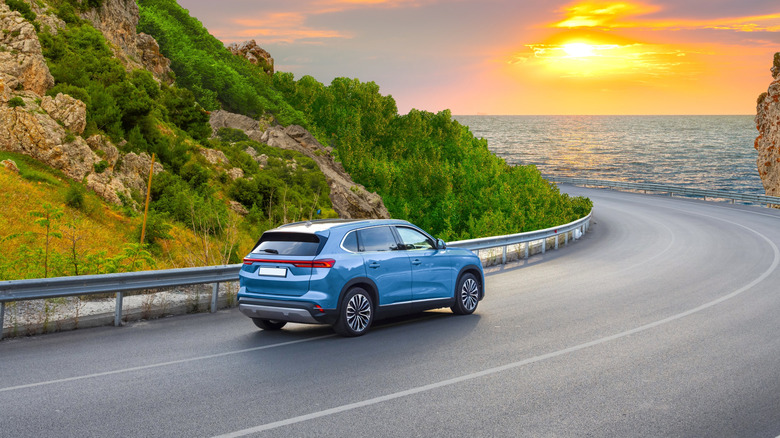What You Can Try To Possibly Get Cheaper Car Insurance
Car insurance is a legal requirement in almost all states, but getting insurance can be very costly. The average cost for full coverage insurance nationwide is $2,692 according to Bankrate, although the final premium can vary considerably based on things like car model, a driver's age, and their location. Drivers looking for ways to cut down their insurance premiums have a variety of options at their disposal, although nearly all of them come with some level of compromise.
One way is to cut down your level of insurance coverage, assuming local laws allow you to do so. The same study by Bankrate pegs the average cost of a minimum coverage policy at $808. However, opting for minimum coverage leaves you with the risk of having to foot the bill for any accident repairs yourself, and in the worst cases, the cost of any hospital bills too. So, it's not the best way to cut your costs unless you have no other choice.
Another option is to increase your policy deductible. By increasing your deductible to a higher level than normal, you'll be personally responsible for a higher proportion of any accident-related costs. Insurers tend to think of this higher personal risk as encouraging safer behavior among drivers, and they'll often charge you a lower premium as a result. However, this is only a good option if you can guarantee that you'll have the cash on hand to cover the deductible amount should you need to use it.
Should you get a car insurance black box?
Insurers often offer cheaper policies to drivers who prove that they can drive safely. Over time, a driver who builds up a clean record can usually use that to their advantage when shopping for policies, while younger drivers looking for cheaper insurance can enroll in an accredited driving course to prove their capabilities in some states. One of the more recent innovations that insurers can use is a telematics device, which is sometimes called a black box. It can be a separate device that's fitted to a car, or it can be an app that's downloaded to a smartphone and activated when driving.
The device uses GPS to monitor a driver's location and speed, as well as the time of day that they usually hit the road. Drivers who frequently drive over the speed limit or accelerate rapidly might find themselves punished by having a black box, but for careful drivers, it can potentially help prove to an insurer that you're less of a risk and bring your premium down.
Black boxes are also used for pay-as-you-drive policies, which bill the policyholder based on how many miles they drive over a given timeframe. For drivers who only infrequently need their car or cover low annual mileage, these policies can be cheaper than a traditional policy.
What other factors can reduce a car insurance policy?
Even if you're not able to prove your safety or increase your deductible, there are a number of other ways you can potentially decrease your annual insurance premium. The easiest is to make sure you shop around for policies, as policies with the same level of coverage can vary in price significantly between insurers.
Insurance comparison websites can be an easy way to do this, but it's always advisable to get quotes from more than one site. Some insurers might not offer quotes through certain comparison sites, and in some cases, prices for the same insurance policy from the same insurer can even vary between sites. Shopping around ensures you have the best chance of finding the right policy at the best price.
Agreeing to install an anti-theft device on a vehicle can also cut down on costs, particularly if your vehicle is a model that's more prone to getting stolen. These devices vary, but can include things like kill switches, car alarms, and GPS tracking devices. If all else fails, it might be worth looking at switching your car for a cheaper model. Some car models will invariably attract huge premiums even with careful policy consideration, with luxury cars and performance cars generally among the worst offenders. There are plenty of cars of all sizes that are cheap to insure, so even if you need a big family hauler, you don't need to pay a big premium.


